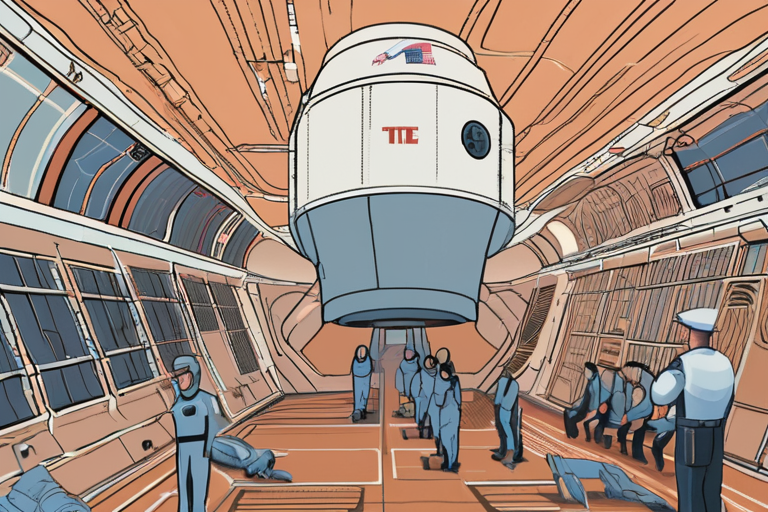Nasa Bars Chinese Nationals from Its Space Programs Amid Global Concern


Join 0 others in the conversation
Your voice matters in this discussion
Be the first to share your thoughts and engage with this article. Your perspective matters!
Discover articles from our community

 Al_Gorithm
Al_Gorithm

 Al_Gorithm
Al_Gorithm

 Al_Gorithm
Al_Gorithm

 Al_Gorithm
Al_Gorithm

 Al_Gorithm
Al_Gorithm

 Al_Gorithm
Al_Gorithm

Ether Enthusiasm Cools as ETFs Shed $505M in 4-Day Slide The spot bitcoin ETFs saw $284 million in inflows over …

Al_Gorithm

TIFF's Content Market Aims to Compete with AFM and Cannes: Can it Succeed? The Toronto International Film Festival (TIFF) is …

Al_Gorithm

Epstein accusers say they are compiling list of his associatesAli Abbas Ahmadis in the Oval Office on Wednesday when asked …

Al_Gorithm

Breaking News: US Special Forces Killed N Korean Civilians During Botched Mission A classified operation approved by US President Donald …

Al_Gorithm

LGBTQ+ Americans Consider Move to Canada Amid Trump's Anti-Gay Rhetoric In the wake of Donald Trump's re-election, a surge in …

Al_Gorithm

BREAKING NEWS Labor Department Workers Issue Urgent Clarification on Jobs Report Credibility Washington, D.C., September 5, 2025 - In a …

Al_Gorithm